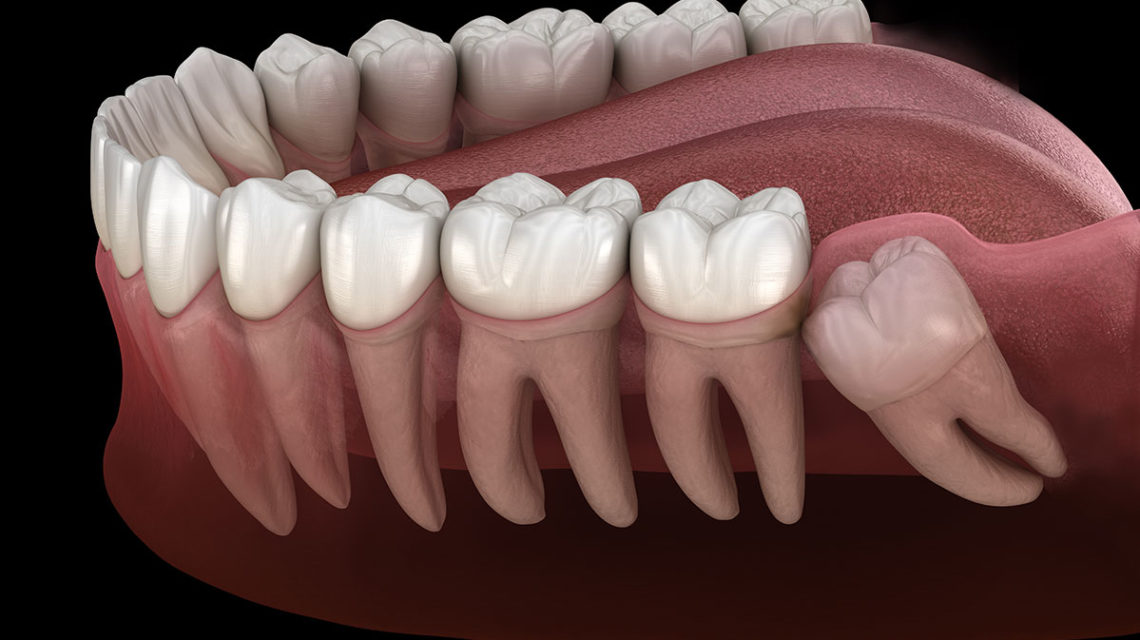The wisdom teeth are the last to emerge in the mouth. They usually appear between the ages of 17 and 25. If you don’t have enough space in your mouth to accommodate the wisdom teeth, they may cause the other teeth to shift as they push through. If this happens, it may result in many dental problems.
If your wisdom teeth have problems, it will be necessary to visit a dental surgeon. It is most likely that the surgeon will recommend their removal. When your wisdom teeth get extracted, it may take you about one week to recover.
However, the duration of recovery will depend on your problem and whether you have impacted wisdom teeth. An impacted tooth is one that hasn’t emerged from below your gums and hence is invisible. It takes longer to recover after the extraction of impacted teeth.
[See: Tooth Extractions Los Angeles]
Table of Contents
What Happens During the Wisdom Teeth Surgery?
Removal of wisdom teeth is an outpatient procedure at the Smile Angels of Beverly Hills. This means your teeth will get extracted, and you’ll go back home on the same day. The surgeon may apply local anesthesia or opt to sedate you, in which case, you’ll remain in a dental chair until you wake up.
For general anesthesia, you may take longer to wake up, so your dentist will transfer you to a recovery room. Let your dentist tell you what type of sedation he will use so that you can prepare psychologically.
After sedation, you’ll not feel your mouth, meaning you’ll not feel any pain during the surgery. But as the effect of the sedative wanes, you’ll regain the feeling of your mouth and some soreness, and probably, swelling and bleeding will follow. To reduce the pain, you can use an ice pack on your cheeks as soon as is possible.
Your surgeon will give you instructions on how and when to take your medications. The medications may include some over-the-counter painkillers and antibacterial drugs, if necessary.
If you underwent general anesthesia, your dentist would advise you to have someone else drive you home. This is because the sedative effects may interfere with your judgment and muscle coordination for some time, making it risky for you to drive.
That said, you also need to be careful with what you eat. Avoid smoking, alcohol, and any beverage with caffeine. Also, please don’t use a straw for drinking as it might cause injuries and even an infection.
Long-term Recovery of Wisdom Tooth Extraction
If you had no infections, you might recover within four days after the surgery. But if you had infections or had impacted teeth, your recovery may take up to one week. The wound that results from the teeth extraction may take some months to heal, so you must be careful, lest your mouth gets infected.
If you aren’t in great pain, you can resume your daily activities the following day. However, avoid any action that might dislodge the stitches. For example, don’t suck anything or eat hard vegetables. Also, do not involve yourself in strenuous exercises.
Bleeding, pain, and swelling are normal after the extraction of wisdom teeth. But if the bleeding, pain, and swelling become unbearable and excessive, call Dr. Bruce Vafa immediately.
Some of these complications could be symptoms of nerve damage or infection, so the sooner you get help, the better. Some signs you should be on the lookout include pus or blood coming out of your mouth or nose, numbness, fever, and trouble breathing or swallowing.
Home Care
As stated earlier, your surgeon will allow you to go home after the surgery. This means it will be upon you to take care of your wound while at home. All Dr. Bruce Vafa will do is give you instructions on what to do and what to avoid. It will be upon you to follow these instructions to ensure your mouth is clean all the time.
When cleaning your mouth, use warm saltwater. You can as well use an antiseptic mouth wash instead of the salt. Avoid spitting the saltwater or the mouthwash. Instead, let them flow out into the sink by tipping your mouth.
Use the saltwater or the mouth wash at least two times a day. And if there is any bleeding, dub the wound gently using clean gauze. This will absorb excess blood.
As the wound heals, you need to resume brushing your teeth as soon as possible. But while doing this, avoid vigorous brushing. Use a soft toothbrush to avoid opening the wound, as this might extend its healing time.
Management of Pain
The pain associated with teeth extraction can be distracting. Use your painkillers and ice to reduce the pain. Do not put ice directly on your cheek as this might cause an ice burn. Instead, put the ice cubes in a sock or a small bag.
Have enough rest and sleep to avoid straining your body, and when sleeping, ensure you raise your head. This will make you more comfortable.
Diet After Surgery
Eating well and staying hydrated will speed up your recovery process. You may not have the appetite after the surgery, but this should not stop you from eating well.
Go for nutritious and soft foods such as smoothies, mashes potatoes, soup, pudding, apple sauce, and cottage cheese. Avoid eating very cold or very hot foods. Also, avoid eating seeds, nuts, or spicy foods until you recover.
Final Word
The extraction of wisdom teeth is a common procedure that dentists use to eliminate the problems caused by these molars. These teeth cause problems with many people, so yours will not be an isolated case.
The recovery from the surgery can take a few days or even months. This will depend on how you take care of your mouth after the surgery. Remember to follow your dentist’s instructions to the letter to avoid any complication. Most importantly, choose a qualified dentist like Dr. Bruce Vafa.
[Also See: ADA Guide to Extractions]



